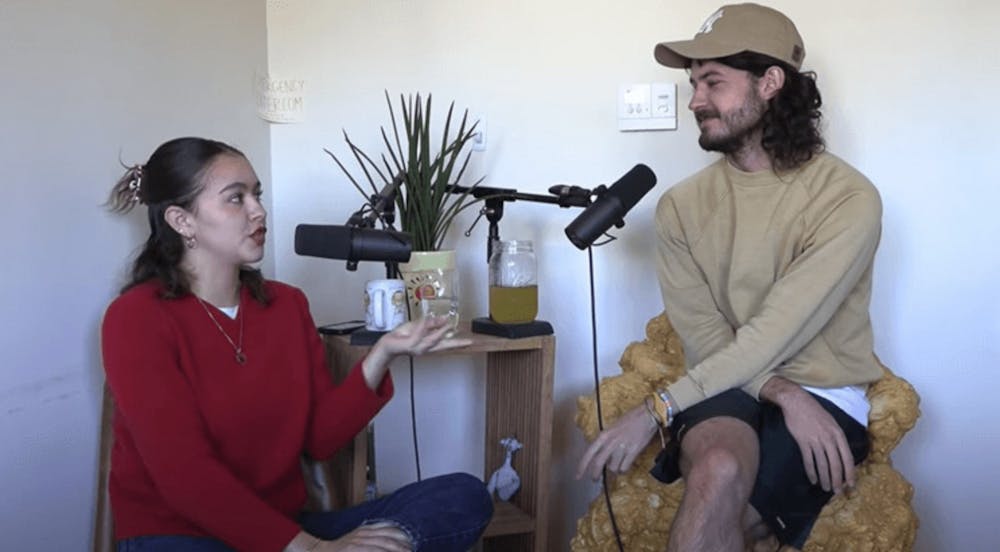I remember downloading Instagram in fourth grade, when the first “Hunger Games” movie had just been released and people thought that the Mayan calendar would predict the end of the world. Back then, humor online consisted of memes relating to shared experiences. Buzzfeed videos reigned supreme and “relatable” humor took over the internet. Phrases like “I did a thing” and “adulting” became the pinnacle of comedy, and millennials drove the online creation industry for 12 year olds like me to enjoy.
This rise of social media soon gave way to short-form content apps such as Vine back in 2013, where virality came from quick, quotable videos that showed ironic or outrageous situations. People began to find humor in subjects that were previously seen as taboo. Creators began to joke about more serious issues like mental health and climate change, using it as a form of coping with trauma or stress and creating humor out of typically serious topics. Humor like this spread its way to other social media platforms, eventually supplanting itself on the newest short-form content app, TikTok.
Isolation during COVID led to a rapid integration of TikTok into the lives of teenagers, shaping the humor we developed. With the world seemingly ending before our eyes, Gen-Z did what we do best: make jokes out of terrible situations. It seems like that’s our generation’s way of dealing with everything. We must think, “The world is ending, so might as well laugh while we have time.” This sensation began to show itself in the way that Gen-Z speaks and jokes in their everyday life. To me, there is no media that shows this phenomenon better than the podcast “Emergency Intercom.”
As former Vine stars, Drew Phillips and Enya Umanzor, co-hosts of the podcast, piece together weekly episodes of “stream of consciousness” content unlike any other I’ve consumed for their over 200 thousand subscribers to enjoy. From the goings on of their day to day to the raunchy — and almost always sarcastic — details of their sex lives, the duo strikes a unique balance of serious, thought-provoking topics and immature, satirical potty humor that you’d likely hear in a middle school boys’ locker room. More than anything, the podcast serves to show how humor has evolved from the days of early social media, and how its creators both shape and reflect that humor.
As opposed to typical comedic duos whose comedy often consists of planned bits, Phillips and Umanzor mostly create jokes from random — often boring — conversation topics. It appears that their humor comes from an ironic portrayal of their actual beliefs.
In one of their recent episodes, Ky, their sound guy who chimes in for the occasional joke, states from behind the camera, “Guys, I’ve actually struggled with mental health stuff...”
Before he can finish, Enya and Drew, who have publicly discussed having issues with mental health, start booing. “Ughhh, oh my god! Where is the fun, where’s the laughter, where’s the joy?” Enya exclaims while Drew makes farting noises with his tongue and gives the camera a thumbs down.
This ironic character portrayal is the epitome of humor on the podcast. The person Enya’s imitating — who many of us have probably met in our life — that’s “tired” of people complaining about their mental health while simultaneously being someone who has been a public advocate for it makes the banter on “Emergency Intercom” so engaging.
When talking about “Emergency Intercom” it’s hard to ignore the difference in comedy that can be reflected from traditional forms of the art. Comedic duos are traditionally straight, white, cisgender men: Will Ferrell and John C. Reilly, Ben Stiller and Owen Wilson, Jonah Hill and Channing Tatum. The list goes on. Seeing a gay man and Latina woman on your screen provides a different opportunity to create humor that defies what society typically accepts as funny.
Given the nature of the jokes on the podcast, their identities allow for greater humor and irony than from the viewpoint of a traditional comedian. It’s a beautiful representation of Gen-Z and how bonds fostered from humans of different backgrounds can lead to the creation of art in new and different forms.
However, it’s not always about the laughs and giggles on “Emergency Intercom.” The carefree nature of the podcast often gives way to discussion about real-life and existential issues of human existence. Drew talks about how the death of his brother affected his mental health, Enya talks about how the lack of access to healthcare in her hometown affects the way mental health is discussed. All of these topics are a reflection of the duality of Gen-Z: on one hand, we joke about how the world’s ending, but on the other, we deal with the harsh reality of existing in one with growing issues like health access, climate change and racial injustice. It’s this dual view of what it’s like coming of age in the digital era that the podcast captures so well. Sometimes, the world seems like a really scary place, and Enya and Drew deal with the reality of living with that the only way they know how: with laughter.
This nihilistic view on the world may not be representative of everyone’s perspective on life, but it’s certainly becoming a more prevalent one of our generation. With a growing number of us not believing in any religious afterlife, we have to make ourselves happy with the time on Earth that we have. And listening to “Emergency Intercom” every Friday helps me do just that.
Get The Chronicle straight to your inbox
Signup for our weekly newsletter. Cancel at any time.

